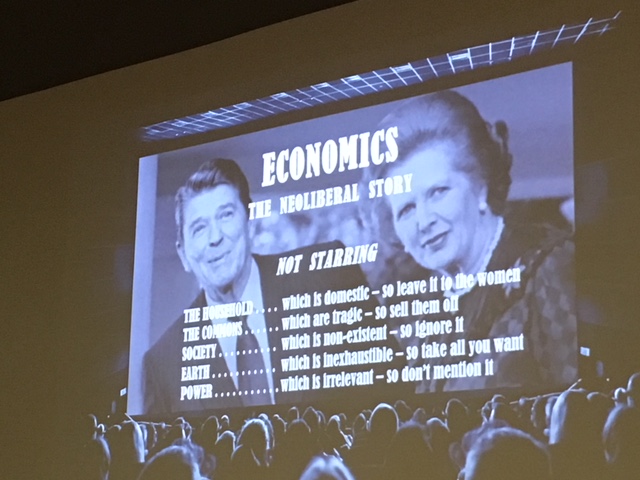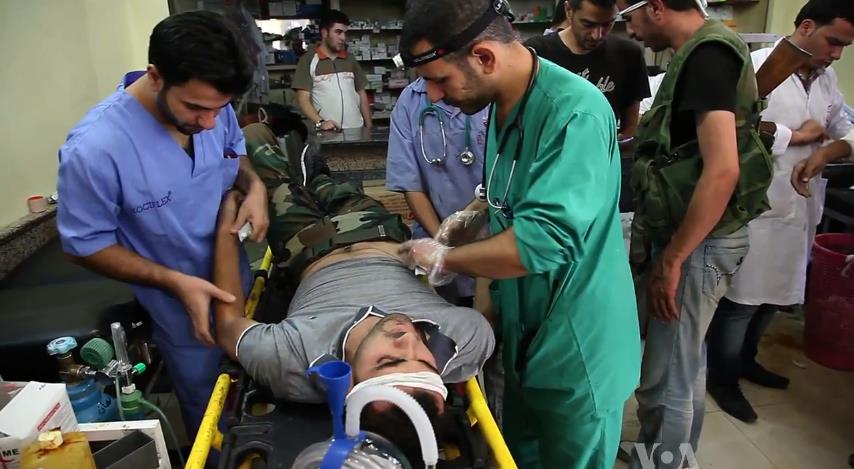On Friday 27 October, James Putzel chaired a panel discussion on ‘The Russia-Ukraine War: Consequences for global security and development’ as part of the Cutting Edge Issues in Development Lecture Series for 2023/24. The panellists for this lecture were Mark Lowcock, Yuliya Yurchenko, Anna Matveeva and David Luke. Read what MSc students Enrico Rizzetto and Emily Ilott took away from the lecture below.
You can watch the lecture back on YouTube or listen to the podcast.
In an almost completely packed Old Theatre, LSE students and alumni were joined by international security and international development scholars Yuliya Yurchenko, Anna Matveeva, Mark Lowcock and David Luke discussing the domestic and international impacts of the current war in Ukraine.
Yurchenko highlighted Ukraine’s challenging situation, given its economy being completely dependent on foreign aid and loans. Budget expenditures are mainly dedicated to the army, leaving a significant gap in resources to be used for other sectors, coupled by the large displacement vis-à-vis the human capital needed for reconstruction. Regarding how to achieve peace and rebuild Ukraine, Yurchenko provided insights into Ukrainian red lines during peace negotiations. These include a deal including transitional justice efforts and Russia leaving its constitutional borders. Meanwhile, a coordinated plan entailing state prioritisation of citizens’ wellbeing and creation of incentives for foreign investors will be crucial during reconstruction efforts.
Echoing Yurchenko, Matveeva underlined the uncertainty on what the future holds for both Russia and Ukraine. She pointed out the various missed opportunities for peace since February 2022 and the likelihood for a continuation of military confrontation resulting from both sides’ incompatible demands, with Russia not ready to accept certain conditions like withdrawing from Crimea. However, she recognised that certain territories could be returned, and compensation to Ukraine can be a component of a potential peace agreement. She also highlighted how Russia’s domestic situation is increasingly stable and how, internationally, Russia seems to be not isolated as the West had predicted.
Similarly, Lowcock emphasised the significance of pursuing peace alongside a strong prioritisation of sustaining Ukraine’s economic recovery. Today, it is critical that the West increases its commitment on two fronts: first, by assuring more reliable and substantial financial assistance, and second, by carefully changing the composition of its economic support. Echoing Yurchenko, Lowcock stressed the importance of the US counterpart in promoting peace, its vital role in aiding Ukraine, along with the urgent need to increase military assistance in anticipation of potential Russian military actions this winter.
Finally, Luke highlighted how the African Union’s peace plan contained the major points upon which peace should be built. It entailed the need for de-escalation, respect for Ukrainian sovereignty, the need for security guarantees for Russia vis-à-vis NATO expansion, humanitarian assistance for the victims and sustainable reconstruction.
As the lecture continued, the debate centred on the war’s global ramifications, affecting development assistance and food security. Luke and Lowcock highlighted how the conflict in Ukraine shifted humanitarian funds away from Africa and other emergencies, exacerbating the gap between available funds and needs. Luke also emphasised how Russia’s suspension of grain exports impacted food security only in some regions of Africa, yet, for Lowcock it affected UN agencies having contracts with Ukrainian suppliers. Only the Black Sea Grain Initiative and the $5bn invested by USAID prevented catastrophic consequences, yet, as underlined by Yurchenko, war has ecocidal consequences, hindering Ukraine’s capacity to produce exportable food products.
Ultimately, the lecture addressed the US domestic political situation in shaping the trajectory of the conflict and the potential domino effect on the Middle East and the anxiety on its implications for China-Taiwan relations. As the conflict continues, such thought-provoking insights will be critical for acquiring a thorough understanding of national and international behaviours.
Enrico Rizzetto
If Russia is allowed to keep any Ukrainian territory, we can shut the door on the United Nations and walk away. – Yuliya Yurchenko, LSE Cutting Edge Lecture Series
My parents have hosted a family of Ukrainian refugees for the last ten months. They are a young couple with a toddler who fled their Kyiv apartment on 24th February 2022, just hours after the Russian tanks crossed the Belarusian border, heading for the city. Their son was five months old.
They have become family to us, and with them in mind, I attended Friday’s lecture hoping to gain a more complex understanding of what trajectories exist in achieving any sort of peace, and what that peace could look like. The breadth of expertise within the panel, and the authority with which they spoke on such complex problems was astonishing. There was a rich interrogation of a range of questions: what are the impacts of the Russia-Ukraine war on international development more broadly? How proportionate was the humanitarian response to the invasion of Ukraine? What would a comfortable Russian victory in Ukraine mean for Taiwan?
The horrors currently unfolding in Gaza hung over the two-hour discussion of these issues. The global spotlight – and the military aid and resources that go with it – has shifted onto the Middle East, and the panel grappled with what this would mean for Ukraine. Sir Mark cautioned against being “rose-tinted” about ongoing US support, and Dr Matveeva similarly predicted a scaling down of Western military and economic assistance. Commenting on the conflict’s wider ramifications for international development, Professor Luke reported that African aid organizations are struggling to fund critical aid projects after OECD development assistance budgets were slashed to support Ukraine. The panel’s insights capture the nuance of this ugly truth: there are countless global crises all worthy of attention and resources, but it feels that there is simply not enough of either.
The most striking part of the talk came when Dr Yurchenko was asked about current peace trajectories. She warned that negotiating peace talks which include conceding Ukrainian territory to Russia would mean a desertion of Ukrainians who, under current Russian occupation, are subject to torture, mutilation, kidnapping, castration, and rape. From these atrocities, Dr Yurchenko told us, children are not spared.
The cost of such a peace is incomprehensible for Ukrainians who – unlike Russian conscripts – are fighting for their homeland. Anything less than a decisive Ukrainian victory and a return of all Ukrainian territory will, according to Dr Yurchenko, justify Ukraine deciding to “shut the door on the United Nations and walk away”. And yet, with Ukraine’s resources draining, and international military assistance scaling down and potentially being redirected, peace in Ukraine seems more distant than ever.
I couldn’t help but think of my Ukrainian family, who grow misty-eyed when envisioning returning home, and reuniting their son with his grandparents. Friday’s talk was informative, interrogative, and intricate, but it was not hopeful.
Emily Ilott
The views expressed in this post are those of the author and in no way reflect those of the International Development LSE blog or the London School of Economics and Political Science.





